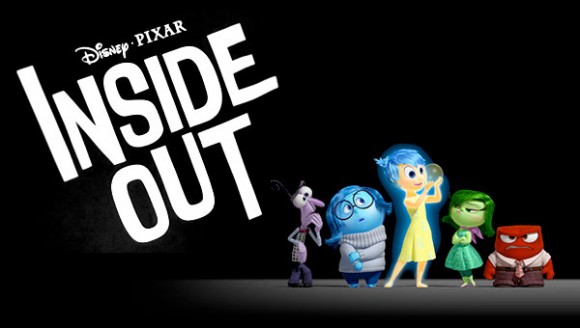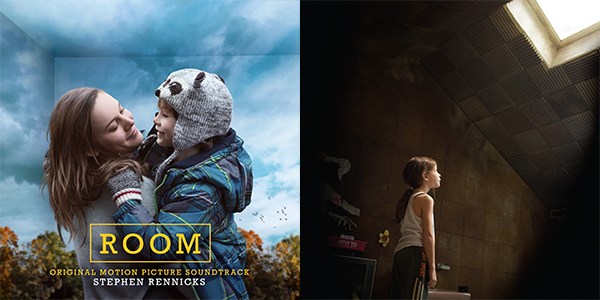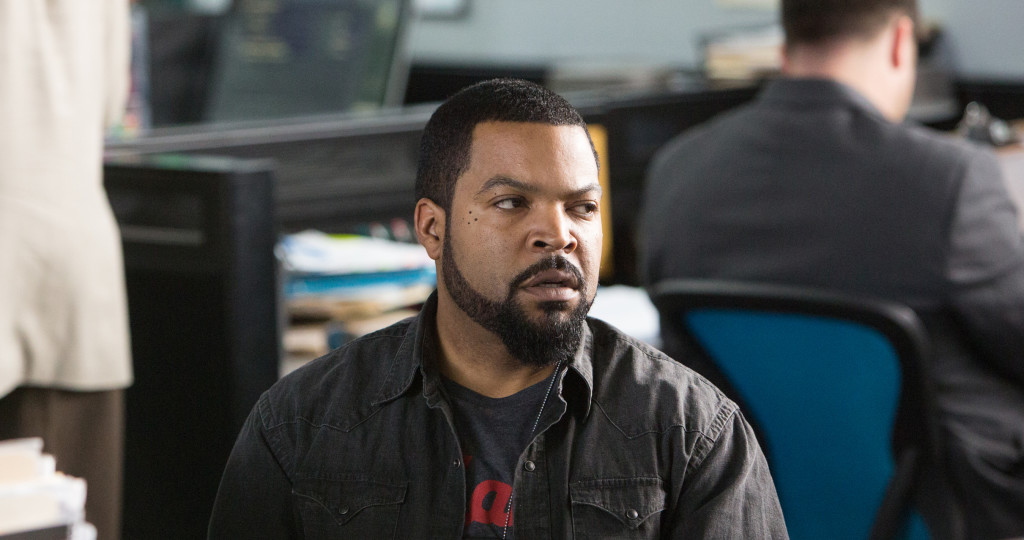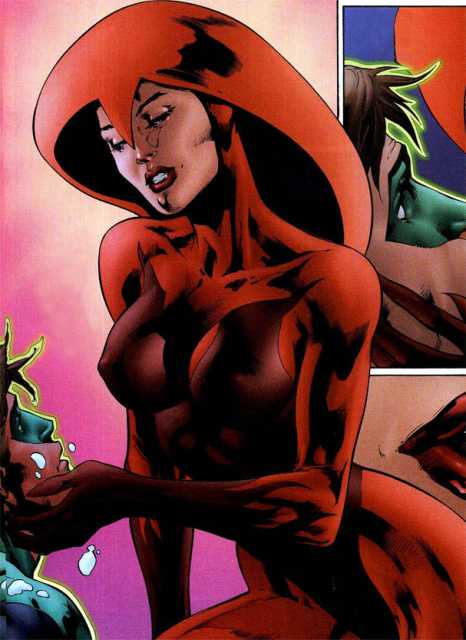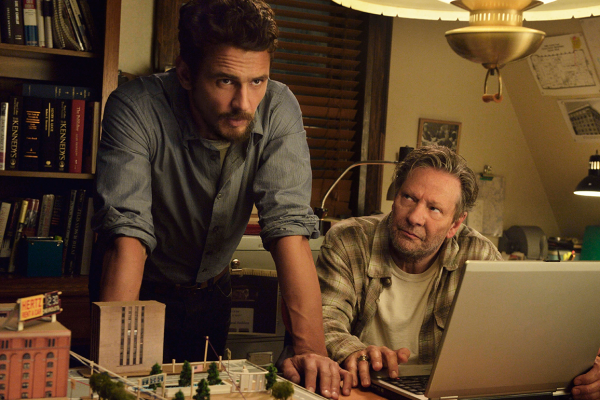Get Your Script Reviewed On Scriptshadow!: To submit your script for an Amateur Review, send in a PDF of your script, along with the title, genre, logline, and finally, something interesting about yourself and/or your script that you’d like us to post along with the script if reviewed. Use my submission address please: Carsonreeves3@gmail.com. Remember that your script will be posted. If you’re nervous about the effects of a bad review, feel free to use an alias name and/or title. It’s a good idea to resubmit every couple of weeks so your submission stays near the top.
Genre: Horror
Logline: When Emma’s sister Sadie is kidnapped by a witch and hidden in an abandoned mine, Emma must search the witch’s lair in an attempt to save Sadie’s life.
Why you should read: If you enjoy horror then I have a treat for you… This Amateur Offering comes paired with a 5-minute award-winning short film based on the feature I wrote. The script itself has received two 7’s on The Black List and has been read by respected agents and studios around town (my witch script is among Alex Ross’ HEXEN on TBL, it’s cool to be among fellow SS readers. I don’t feel so lonely). Alas, I have yet to reach the level we all hope to be apart of, “produced writer.” So please, watch and read and give me your thoughts on what more I have to do to sell my first screenplay. I’d really appreciate it.
Writer: Joseph I. Martinez
Details: 103 pages
Well last week sure got testy, didn’t it? But in the end, traditionalists prevailed, as American Witch won over what some referred to as a screenplay abomination – a direct attack on the very foundation of the craft!
All kidding aside, a “get noticed” script is a legitimate strategy for breaking in. And if you’re going to write one, you might as well go all out. I mean what would be the point of writing one otherwise?
I will say that you should use your creativity to connect in clever unexpected ways, rather than resort to swear-laden first-person attacks on the reader. There’s a fine line that exists between fun and annoying, and that choice usually goes on to offend a hefty percentage of the readers. So you’re playing with fire, brother.
Also, “Get noticed” scripts have become cliches in and of themselves. Patterns have been established. So if you’re going to tackle a genre that thrives on originality, it’s paramount that you find new avenues to explore. Don’t do what the “Get Noticed” scripts did before you. Show us how you’re unique.
Okay, onto American Witch. Wow, what an opening scene, amirite!? I can see why you guys voted for this. One of the quickest ways to identify a good writer is if they can take me out of my apartment and into another world.
When this crazy motherfucking woman was being buried in a hole with hot tar and she sticks a walnut into her vagina and we time-lapse to see a Walnut Tree grow out of it, taking us to the present day… I WAS FUCKING IN IT, MAN! I was planning to send this to a studio.
But then the script slows down (we were just discussing this last week!) and becomes Setup Castle. Here we meet the fam, which includes 18 year-old Emma Ore, her single mother, Amanda, and her little sis, Sadie.
Amanda’s found a male suitor in Dr. Burns, and with Emma making it into the college of her dreams, the family’s fortunes are looking up. But then that very night, Amanda sleepwalks out of her bed into the stormy night, never to be seen again.
Cut to a year later where poor Emma, who never ended up going to college, has weird panic attacks where she sees her dead mom. Dr. Burns has provided her with some time-sensitive medication as well as a calming-phase (“Cashmere roses, wicker shakes, twenty-two”) to repeat so that Scary Maggot-Infested Version of Mom disappears.
No later than a day after we re-join Emma, her sister, Sadie, disappears just like mom did! We seem to have terrible timing popping into this girl’s life. Soon after, Emma gets word from the voices that Sadie’s being held in the local mine, so she takes her controlling boyfriend, Cole, to go look for her.
The rest of the script plays out exactly the way the logline says. We creep around this rickety abandoned mine, peeking around corners with our cell phone light, looking for sis. Occasionally, we run into the ghosts of unfortunate miners who died down here as well as a few souls dumb enough to cross paths with a badass witch named Icka Crombie. In the end, Emma will have to make some tough decisions in regards to how far she’s willing to go to save her sister. Will she kill to do so????
American Witch has some nice moments. The aforementioned opening. There’s also a scene where a little ghost boy who died in a cart asks to be pushed (with his one stipulation being that Emma CANNOT LOOK AT HIM). So she’s pushing him, looking away, but she wants to look and we want to look and we’re all terrified at what we might see, and when we do end up seeing him, he lives up to the curiosity.
But American Witch suffers from one of those annoying little things that, if gone unchecked, can kill a script. I’m talking about LACK OF CLARITY. The writer, Joseph, keeps things clear 75% of the time. But the other 25% we’re on our own to wonder what the heck is going on.
For example, I didn’t understand the family dynamic. Was Dr. Burns Amanda’s lover? The step-dad? A family friend? Your guess is as good as mine (get it!). And then I couldn’t understand the prescription pill chant combo. Emma was taking a pill that was time-sensitive down to the second (do those exist?)?? And in addition to taking the pills, she had to repeat a random phrase? How did those two things connect exactly??
It seems like a minor criticism. They’re such small details. But the whole point of writing is to have the reader exactly where you want them to be. You want to be in control of their emotions and feelings and interest at all times. And if they’re gradually wandering off a few degrees here and a few degrees there because you’re not making the details clear enough, they’re now experiencing a different story than the one you’re writing in your head, and who the hell knows what that story is?
This is a common problem, guys. I literally just gave notes on a script I read two days ago on the exact same issue. You have to be clear.
Moving forward, Joe should spend more time figuring out how to incorporate the mythology of his opening scene into the present-day storyline. That opening scene was awesome. It was rich with detail. It was unexpected. It dug into you a Hilton bed bug. But once we get to the present, we’re listening to borderline dopey scenes of characters saying things like, “Did you get into college??!” It was like going from watching The Godfather to Anchorman. The shift in sophistication was too drastic.
But the script shined in the moments where it did connect the mythology. We saw the witches dump severed heads into the cave in that opening scene. It’s no surprise then, that one of the best scenes has Emma checking in that cart to see the little boy… only to see that he’s a severed head.
That’s where this script is going to come together. And Joseph can pull it off. We’ve seen he’s capable of writing some great scenes. Let’s write more of them then. It’s a matter of pushing yourself to be better. Of not being satisfied with “okay.” This one had potential. But it’s not quite there yet.
Screenplay link: American Witch
[ ] what the hell did I just read?
[x] wasn’t for me
[ ] worth the read
[ ] impressive
[ ] genius
What I learned: If you have a non-traditional family dynamic, don’t assume the reader will just understand it. You have to explain it to us. I read a script not long ago where I thought I was watching a traditional nuclear family. Then 40 pages in, I learn that the “dad” was actually the “uncle,” who had come in to help the family out when their father died. How the hell was I supposed to know this if you didn’t tell me? Never assume, guys. Especially with things that are easy to misunderstand.
It’s tiiiiiiime. This Sunday. The Oscars. Me. You guys. Bears. Dresses. Snarky opinions. It’s going to be AHHH-MAAAAAA-ZING. One of the coolest things about this Oscars? There are no frontrunners. Outside of Brie Larson and maybe Leo, anyone can win anything. But of course, the only categories anyone cares about when they watch these things is best original and adapted screenplay. And wouldn’t you know it, I’m here to handicap the contenders for you. To give you an idea of how I judge screenplays, I first look at the difficulty level of each script and then how well the writer(s) executed their take. If you are offended by strong opinions, please look away now. Cause some of these nominees have me riled up!
ORIGINAL SCREENPLAY CATEGORY
Bridge of Spies by Matt Charman and Joel and Ethan Coen
I’m going to try and be as polite as possible here. This script was a disaster. I don’t know why this movie is in the running for anything. It’s a weird concept, it has a bizarre structure, and it never understands what kind of movie it is. It feels like it was written in two weeks and they never went back for rewrites. From the little I’ve heard in interviews, it appears that Charman won the Hollywood lottery when Steven Spielberg fell in love with ONE SCENE in the script (the scene where they fill up the bathtub) and wanted to make it because of that bathtub scene. You can smell the scenes that the Coens worked on from a mile away (Tom Hanks being shaken down when he comes into East Berlin) as they’re the only scenes with any semblance of conflict or direction. This script should not be anywhere near an Oscar nomination.
Spotlight by Tom McCarthy and Josh Singer
Oh boy. Once again we find ourselves debating the most average-ly written screenplay of the year. Kudos to McCarthy and Singer for finding such a compelling real-life story, because that’s the only thing this movie has going for it. Once you look underneath the hood, you see zero attempt to create any drama or conflict (why isn’t the church going after the paper harder??) and even less of an attempt to explore the characters – you know, the people we’re supposed to feel attached to so that we care whether they succeed or fail!?? Every ounce of care the viewer has for this story has to do with the real life element of it. Zero has to do with the characters the writers painted for us, since they painted in no. 2 pencil. Case in point, does anybody know anything about the only female character in the movie other than that she was a reporter? Oh wait, we know she lives with a man. But they don’t even tell us who the man is! Is he her husband? Her brother? To tell you that would mean actually getting to know this woman. And I’m sorry, but that’s simply not allowed in Spotlight. If you’re judging this movie as an informercial for journalism, then yes, give it an Oscar. If you’re judging it as a screenplay, it shouldn’t even win the Nicholl, much less the most prestigious screenwriting award of the year. I’ve never seen a screenplay win the Oscar that didn’t have compelling characters. So if this does, it will be the first.
Inside Out by Pete Docter, Meg LeFauve and Josh Cooley
Inside Out is the opposite of Spotlight. It’s heavy on character development and tells one of the most complex stories I’ve ever seen put to paper. Nobody in this category is even in the same galaxy when it comes to degree of difficulty. Your main character isn’t the main character. You have to turn feelings into complex characters. You have to wrestle down endless gobs of exposition and somehow make them digestible, all while keeping the story moving. You have to create an entire universe that’s never been done before in any film. Inside Out is the only script in either category where the writers didn’t have a blueprint film they could work off of. They had to build the whole thing up from scratch. If these writers voting truly know what they’re talking about? Inside Out should win.
Ex Machina by Alex Garland
I’m so happy to see Ex Machina included on this list. It really was a great little script. It’s got two huge things hurting it though. It’s sci-fi (which never wins) and it’s too simple. The Academy doesn’t like to award simple. They want something that feels bigger and more complicated. Despite these types of scripts being harder to write than they look (keeping things interesting with three characters in one location for 90 minutes is really fucking hard to do!), this just isn’t the kind of script that gets an award.
Straight Outta Compton by Jonathan Herman, Andrea Berloff, S. Leigh Savidge and Alan Wenkus
I don’t know what’s going here. Why was this nominated? It’s a straight up music biopic that follows all the cliche beats. If Inside Out had no blueprints for its script, Straight Outta Compton had dozens. And it looks like they used them all. I suppose the one element of difficulty was the fact that they were following four protagonists instead of one. And that can be tricky. But everything else here felt broad and safe. Definitely not a contender.
MY PICK TO WIN?
ADAPTED SCREENPLAY CATEGORY
The Big Short by Adam McKay and Charles Randolph
I’m kicking myself for not seeing this movie yet. I read the book, which had a compelling premise – that a single man was so sure the housing market was going to crash that he invested all his money in it and earned billions – but lost track of the film because it came out during Force Awakens fever. It looks like Adam McKay took it in a much crazier direction than what was in the book, which, going off of everyone’s reactions, was a genius move. I have a feeling that this might have been my pick had I read the script or seen the film. But I haven’t so… it’s semi-disqualified from today’s voting. :(
Carol by Phyllis Nagy
What. The Fuck. Was. This Movie? Carol is one of those movies you walk out of and go, “Well I guess I’ll never get those two hours back again.” It was the worst kind of film experience. It wasn’t bad. It wasn’t good. It was a time-waster. Nothing memorable happened. It didn’t even embrace the one element that would’ve added drama – a lesbian relationship during a time where that was frowned upon. In this world, a lesbian relationship was no different from a heterosexual relationship. Which is fine. But if you’re going to treat it that way, you don’t have a movie! You have a travelogue of a May-December romance in which the roles could’ve been two women, two men, a man and a woman. Why did this movie need to be about two women in the 1950s?? It didn’t! So why even make the film???? I love Cate Blanchett as much as any film lover. I’d watch her act out my apartment lease. But is there anyone anywhere in the world who sees this and goes, “Man, how bout the writing in Carol? Wow.” No! Nobody! So why is this a nominee???
Brooklyn by Nick Hornby
I don’t even know what this movie is about but it looks as boring as its title. That’s all I have to say about that.
The Martian by Drew Goddard
The Martian is a screenplay that should be garnering more attention, but because it’s stuck in the dreaded “sci-fi” genre, academy members aren’t sure what to do with it. It’s like seeing a goth girl at a black tie event. She’s totally out of place but you still want to go up and talk to her. And this adaptation was a lot trickier than people realize. You have to take a book where the main source of communication occurs through a written diary discussing past events and dramatize that. You had to take a book that spent 75% of its time talking about science and math, then get rid of the majority of both while keeping the spirit of them in tact. And hardest of all, you had to take a story that lasted 2 years and make it move quickly onscreen. All while covering an extensive character list. The Martian may be a dark horse. I know that a lot of Academy members loved this movie but feel that they’re violating some code by voting for it. C’mon guys. Don’t be afraid!
Room by Emma Donoghue
Here’s what I like about Room as a screenplay. It’s a very simple story, yet it still contains some big challenges, the biggest of which is (spoiler alert), what do you do once the characters get out of the room with half the movie still left? I want you to take a second to realize how difficult that challenge is. The most compelling part of your screenplay – a woman and her son trapped in a room for years – is over by the midpoint. How do you even come close to keeping us engaged after that’s over? Emma does it via pure character development (are you listening Spotlight?) as the mom has a mental breakdown and the son tries to find his bearings in a world a million times bigger than the one he spent the first 7 years of his life in. And on top of this? Emma had to change the point of view to tell her story (the book was told exclusively through the eyes of the boy, if I remember correctly). I know this movie is being celebrated mainly for its wonderful performances. But I wouldn’t mind if it also got recognized for its screenplay.
MY PICK TO WIN?
Today we talk about the danger of a weak premise as well as a little-known structural pitfall that can spell doom for your screenplay long before you’ve written it.
Genre: Comedy
Logline: On the last day of school, a mild-mannered English teacher manages to upset his co-worker, who then challenges him to a fight at the end of the day.
About: This script sold last year and will star Ice Cube and Charlie Day (It’s Always Sunny In Philadelphia) in his first leading man role. It was written by Van Robichaux and Evan Susser, the team who came onto the scene when their script, “Chewie,” which documented the making of Star Wars through Peter Mayhew’s eyes, finished in the top 10 of the 2011 Black List.
Writers: Van Robichaux & Evan Susser
Details: 109 pages – December 17, 2014 draft
I remember when this script sold and there was a ton of backlash. “They’re not buying any scripts,” people said, “yet when they do buy one, it’s a comedy about a fist fight??? Can we possibly dumb down the spec trade any further?”
I’ll admit that when I hear a comedy idea that doesn’t contain irony (Old School, Liar Liar, Neighbors), I wouldn’t say I dismiss it out of hand. But I worry. The top dogs know the key to comedy is irony. Any time you’ve heard a comedy idea where you’ve gone, “That’s a great idea,” 99% of the time it’s because the premise contained irony.
Here, I see a teensy bit of irony. Instead of kids getting in a fist fight, adults do! But not nearly enough to inspire an entire movie.
If there’s little-to-no irony, I turn to requirement #2: Does the concept promise a lot of jokes? So for example, if I gave you guys the premise for Neighbors before it was turned into a movie, I bet all of you could come up with ten scenes to exploit that premise off the top of your head.
Here, we have a fist fight. I don’t see a plethora of jokes stemming from that.
If irony and multiple joke potential are out, I turn to requirement #3: Does the writer have a unique voice? Because writers who see the world differently and have a unique sense of humor can find humor in the mundane. Look no further than Charlie Kaufman.
Here, this looks to be a straight mainstream comedy. So “voice” is out the window.
If all else fails, we come to requirement #4: The writer is stomach-hurts-because-I’m-laughing-so-hard funny. If someone’s funny, they’re funny. And while they’re going to be fighting an uphill battle due to their weak premise, they can still draw upon hilarious observations, great jokes, and funny dialogue, because they’re funny! I’ve seen bad ideas saved due to the writer being hilarious.
Let’s see if that happens here.
Campbell is a high school English teacher who has to provide for two young daughters, one more on the way, his wife, and his wife’s mother. Times are tough even when things are going well in Campbell’s career.
And now, they’re not going well. It’s the last day of school and word is that Campbell has a 50/50 chance of getting fired due to budget cuts. So he’s already on edge when he shows up to a school where out-of-control teenagers are doing everything in their power to make their teacher’s lives miserable.
As Campbell jumps around, avoiding the 10,000 traps the students have set, he witnesses the psycho history teacher, Mr. Strickland, nearly decapitate a student for screwing with a screening of Strickland’s favorite documentary.
The principal asks Campbell what he saw, and Campbell is forced to tell the truth. This is a bad idea, since Strickland finds out and decides that he and Campbell must now fight after school. Campbell, a born wimp, does everything in his power to get out of this ridiculous duel, but all his efforts fail.
In the meantime, he’s waiting for his exit interview to explain why he needs to be kept on staff. Should that interview go bad, there’s a good chance he and the five women he lives with will be evicted by Andrew Garfield and Michael Shannon (sorry, indie film joke there).
Will Campbell keep his job? Even if he does, will he be pummeled into submission by a psycho in front of the whole school? Wait for the trailer to “Fist Fight” to arrive as I’m sure it’ll provide us with the entire movie.
So here’s the thing.
Barely anything works here. And this is what you get when you’re working with a weak premise.
A good premise tells you where to go. When you’re in the fields of page 55 and you don’t have anything left, a good premise points the arrow for you. The Hangover knows that we gotta get to Doug. So when you’re in trouble, come up with some shit that gets us closer to Doug!
And that’s what’s wrong with Fist Fight. See, Fist Fight doesn’t give the hero a goal to work with (a “Doug”). It gives him a time he must be somewhere by. This now puts the writer in a predicament. He has to come up with things to do UNTIL THAT TIME ARRIVES.
That’s a lot different than working with a goal, where your hero will actively pursue things. In this script’s scenario, it’s kind of like you’ve shown up to the dentist an hour early and need to figure out how to kill time until your appointment starts. Is there a chance that you’ll fill up that time productively? Possibly. But it’s much more likely you’re going to surf your phone aimlessly and play Candy Crush.
That’s why these setups scare me. They make you look at the structure the wrong way – as a time killer.
And we see that here. You can feel the writers desperately trying to fill in space. At one point, there’s a mediation from a third teacher to try and stop the fight. We also get a flashback scene accompanied by a Strickland voice over to explain why this fight needs to happen. Why are these scenes in the movie? Because they fill up time.
But it’s not just that. It’s that the concept predicated that we approach the plot in this manner. The issue was there long before you had to write the mediation scene.
These situations almost always lead to wonky plotlines, such as Campbell being ordered by the principal to ask Strickland to resign since he doesn’t want to fire him himself. When that fails, Campbell comes up with the idea that if he can get the kid who Strickland attacked to withdraw his statement, then the principal can’t get rid of Strickland and Strickland won’t want to fight anymore.
Yeah, these are the things driving the story.
The fault of this script always came down to one thing. We knew it when it was announced. It’s too thin a concept. And it reads that way.
The only reason I didn’t give it a “what the hell did I just read” is because I think there’s potential for another story. Call this, “Last Day” and focus on the crazy shit that students pull on the last day of school. That’s the strength of this script anyway – the kids pulling pranks on the teachers. Imagine a darker version of Ferris Bueller puppeteering the take-down of the entire school and a teacher who’s tasked with stopping him. That could be fun. What I just read wasn’t fun.
[ ] what the hell did I just read?
[x] wasn’t for me
[ ] worth the read
[ ] impressive
[ ] genius
What I learned: I’ve said this before. If your premise centers around an activity that could easily be a subplot in another movie, you probably don’t have a big enough premise. Fights happen all the time in movies. So to make that the main plot is a tough sell. I’m not saying it can’t work. It’s a hell of a lot harder though. Why not save yourself the headache and come up with a bigger premise?
Today’s pilot not only brings one of the best superhero ideas in years to the table, it also reminds us just how important it is to find that fresh angle to a stale genre!
Genre: TV Pilot – Comedy/Superhero
Premise: In a world where superheroes leave a limitless path of destruction, we follow an insurance company that specializes in insuring against superhero-related damage.
About: I’m still not sure if Powerless was a comic book or not, but I do know this show will be covering damage from REAL SUPERHEROES. Well, I mean, if you count superheroes from the DC universe “real.” The show was created by Ben Queen, who wrote a straight-to-video flick called “Proximity” back in 2001, then went through a bit of a drought before securing a coveted Pixar writing job in 2011 (Cars 2). His work has been steadily increasing since, culminating in “Powerless,” which NBC is said to be SUPER high on (get it!?).
Writer: Ben Queen
Details: 34 pages – January 5, 2016 draft
You wanna know one of the key differences between a pro writer and an amateur writer? It’s something that took me years to figure out, and until you make the mental switch in your own head, it’s like you’re playing checkers in a city of people playing chess.
An amateur sees that superhero movies and superhero TV shows are doing well and they say to themselves, “That means I should write a superhero movie or TV show.” A pro writer, on the other hand, sees that superhero movies and TV shows are doing well and says, “That means I need to find an angle into this superhero thing that hasn’t been done before.”
In other words, they don’t come home from the opening weekend of Superman and start writing Batman. They come home from Superman and start writing Hancock.
Now there’s a whole art to this – exploiting old ideas for new ones. And I’m going to get into how to do this in a bit. But first let’s check out the show that’s inspiring today’s discussion, Powerless.
28 year-old Emily Locke is sick of superheroes, or “Supers” as they call them in this universe. These costumed egomaniacs are always battling each other, using the city as their own personal UFC fighting cage. This leads to all sorts of damage and death, and for what? So that these cool dudes with their slick leather capes can get a Saturday night table at Bar Marmont?
Recently, Emily’s boss and mentor was killed during one of these battles. So when Emily found herself on a train to work that happened to be picked up by “Crimson Fox” during an early morning battle with Jack-O-Lantern, instead of thanking her for performing her superly duties, she looked straight into Crimson’s eyes and said, “Do you mind putting us back on the tracks?”
Emily didn’t think much of what she said. She was fed up and wanted to get to work on time. But afterwards, word spread about the woman who stood up to the superheroes, and “Put Us Back On The Tracks” began trending on every social media site in the world.
Unfortunately, no one was able to get Emily’s name, which happened to be how she likes it. Emily is the opposite of a Super. She likes to hide out in the background and do her job anonymously. That job takes place at RetCon Insurance, one of the many companies that offers superhero-specific damage insurance.
But Emily’s strange day has only just begun. It turns out she has a new boss, Del, who’s the son of the company’s CEO. And up until today, Del has never had to work a day in his life. Because he has no idea what he’s doing AND he’s a dick, Del replaces everyone’s desks with standing desks, moves the bathrooms off the floor (a trick he read about in Steve Jobs’ biography to improve inter-department relations) and generally makes working conditions at the company only slightly better than a concentration camp.
When Emily’s best office buddy, Teddy, finds out that Emily is the “Back on the Tracks” girl, he encourages her to also stand up for the company and get their working conditions back. Emily will have to decide whether she wants to remain anonymous forever, or have the POWER to speak up and make a difference.

So let’s go back to that question I posed earlier. When you’re looking for a fresh angle on a ubiquitous genre, where do you find it? To answer that, let’s first look at where you don’t find it. You don’t find it in the cliches, in the repeated beats, in the staples of the genre. If you’re looking for inspiration through the things that happen again and again onscreen, you’re only going to be copying.
Where you find inspiration is in the stuff THAT THEY DON’T SHOW. Which means you have to go BETWEEN THE SCENES. You have to imagine what the world they don’t show you is like.
So in this case, the writer asked, “What happens AFTER a superhero battle? Who pays for all that damage?” Or “What happens to those commuters on the way to work when their train gets derailed in a battle? What are the logistics of taking care of that?” And that’s how you’re going to get fresh material. Because those are questions that aren’t usually asked.
And in general, this is how good writers approach everything. They look beyond what’s directly in front of them. They draw inspiration from the peripheral.
As for the story driving the pilot’s plot, I thought it was good, but not great. I liked that the show didn’t rest on its laurels. It didn’t say, “Look at this cool idea I came up with. Now watch me dick around for the next 35 minutes.” It brought this whole crazy boss plotline in which kept the office stuff firing on all cylinders.
And I love that. I love when writers say, “I know I have a cool idea here. But I’m still going to push myself and come up with an actual story here.”
My problem was that the story they chose didn’t connect enough with the concept. It was TOO SEPARATED from the superhero angle. I mean if your concept promotes a company that deals with superhero destruction insurance, shouldn’t your pilot deal with a major insurance claim that came via superhero destruction?
You could’ve even tied it in with the opening. Maybe Crimson Fox dropped the subway car that Emily was on and that was the claim. I’m not sure a standing desks debate best takes advantage of the cool concept you’ve constructed.
But the pilot survives this misstep because the writing is crisp and funny and promises a world where we likely WILL see insurance-related plotlines. It also hints at some fun surprises, such as some of the people at work secretly being superheroes.
So while I didn’t think this was perfect, it was much better than the typical slew of superhero stuff I read. I think NBCs got a rare winner on its hands.
[ ] what the hell did I just read?
[ ] wasn’t for me
[x] worth the read
[ ] impressive
[ ] genius
What I learned: When looking for a fresh spin on an overdone genre, being different isn’t good enough. You want to be clever. For example, I could bring a fresh take to the superhero genre by focusing on a superhero who’s a great cook. But is that a movie that people would wanna see? No. It’s not clever in any way. Insurance claims stemming from superhero destruction is an intellectually rich idea that offers all sorts of possibilities.
So I’m going to toss it over to you guys now and see how much you’ve learned. Another common genre at the moment is the young female post-apocalyptic YA flick. I’ve just hired you to give me a fresh take on the genre. Leave that fresh take in the comments and upvote your favorite submissions. Winner gets “Featured Comment” Status and their very own virtual green light!
I’m off for the day guys. I’ve been reading Scriptshadow 250 Contest scripts all weekend and need a breather. I know there was a big hubbub over a certain script submitted to Amateur Offerings on Saturday. Guys, honestly? Don’t get your skivvies in a bunch over it. A “Get Noticed” script is a perfectly viable approach to marketing yourself in this industry.
Less and less specs are selling each year so you’re not so much writing to sell as you are writing to get noticed. If someone wants to break the rules and write first-person action lines, it’s not a big deal. We’ve seen Black List scripts do this. We’ve seen Nicholl finalists do this. And hell, we just saw a movie dominate the box office that embraced this mentality. I’m not sure why people were freaking out about it so much.
Moving on, here are 5 scripts that you don’t want to write, derived from the last 5 Scriptshadow 250 scripts I read. I know you’ll all ask, “When will you announce the winner, Carson??” I refuse to answer that question as I haven’t met any of my previous deadlines. All I can say is that I have 18 of the 25 finalists so far and that I continue to read!
1) The “By-the-books” script – I read a biopic and the writing was actually really good. But the writer hit all the biopic beats right down to the childhood flashbacks. There wasn’t a single moment that surprised me. I was 50 pages ahead of the writer, and that was on page 5! You have to infuse some unexpected choices into your scripts guys! Don’t just use a template from a successful script in your genre and follow it to a ‘t.’
2) The “Can’t Get Out of My Own Way” script – This script came from one of my favorite commenters on Scriptshadow so I was really looking forward to it. But the writer was so set on impressing us with his writing that every paragraph was 15 words longer than it needed to be. I had to keep going back through sentences to understand what I’d just read. Just getting through the script became a chore. Stop overcomplicating things. Write in a simple manner that’s easy to read!
3) The “Flashbacks For No Reason” script – Oh boy. This script kept jumping back into flashbacks that would REPEATEDLY tell me things I already knew. The main character liked chocolate. So the flashback would be of the hero as a child buying chocolate from a candy store. No, guys. No. If you’re going to include a flashback, it better have a point that relates to the story!
4) The “I Haven’t Done A Lick of Research Into the World of the Story I’m Telling” script – This particular script was about a bunch of hardcore thugs who came from a rough neighborhood. Though it was clearly written by an upper middle class white dude who’d never spent a day in the hood in his life. If you’re going to write about a world you know nothing about, you better take the time to research that world. The page don’t lie.
5) The “I’m Not Bringing Anything New To The Party” script – It’s perfectly okay to want to bring back a genre. For example, writers have been trying to bring back the Spielberg 80s movies for 20 years now. But there’s a difference between bringing a fresh new angle to these movies, and bringing us the exact same movies we’ve already seen. If you don’t bring the fresh new angle, your script will feel dated, like something that was written in the 80s, and that’s not what you want.
Hope that helps. Oh, and check out both 11/22/63 on Hulu and Love on Netflix. Both rock and are very well-written!



